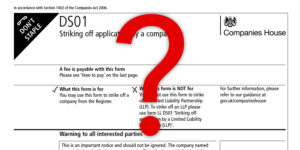Directors must fulfil certain legal obligations after forming a limited company. Whether they are based in the UK or operate the company from abroad, directors have a statutory duty to file and maintain certain company records, submit registrations and returns to Companies House and HMRC, and ensure that the company’s details are appropriately displayed on all official business stationery and correspondence, amongst other things.
This blog explains the five legal duties you must adhere to after setting up a UK-registered limited company.
Key Takeaways
- After incorporation, limited companies must register for certain taxes, like Corporation Tax and Value Added Tax.
- Limited companies must also keep and file certain statutory records about the company to Companies House and HMRC, as well as make relevant payments. There are various filing deadlines for each submission.
- Certain company details must also be displayed on company stationery, and directors must comply with their statutory duties. These are set out in the Companies Act 2006 and the company’s articles of association.
1. Register the limited company for tax
After a limited company is successfully registered, Companies House, the UK’s registrar of companies, notifies HMRC, the UK’s tax authority. HMRC will then send the company its Unique Taxpayer Reference (UTR), usually within two weeks. The UTR serves as the company’s ID for tax purposes.
However, while UTRs are issued automatically, it is the limited company director’s legal obligation to register the firm for Corporation Tax (CT) within three months of starting any kind of business activities. CT is a direct tax that registered companies pay on their profits.
To register a limited company for CT (and to file an annual tax return), a Government Gateway account is required. An account can be created with the following details:
- Company name and registration number (both can be found on the certificate of incorporation)
- UTR
- Trading start date
- Primary place of business
- SIC code(s) (to describe what the company does)
- Accounting reference date (ARD, typically the last day of the month in which the incorporation anniversary falls)
After registration, HMRC will send a letter to the registered office address containing a temporary PIN that activates the account. Once activated, the company is successfully registered for CT and must file a tax return every year.
VAT registration
The limited company may also need to register for Value-added Tax (VAT). This is only a legal requirement once its taxable turnover exceeds £90,000 in a 12-month rolling period, or it is expected to do so in the next 30 days (unless the goods or services sold are exempt from VAT). Registering before then is optional.
- How to register for tax after forming a company
- What are the filing requirements of a limited company?
- A guide to annual accounts
Other VAT thresholds, such as the distance selling threshold, may apply if the company buys and sells goods from overseas. This is where the total value of goods sold to EU customers exceeds £8,818, in which case the company must register for and pay VAT in the countries where the goods are sent.
For help with VAT registration, explore the 1st Formations VAT Registration Service.
2. Maintain statutory registers and records
Another legal obligation after setting up a limited company is maintaining its statutory (legal) registers and records. These documents contain key information about the company, its officers and its ownership.
Statutory registers
Limited companies must currently keep the following registers:
- Register of members
- Register of directors
- Register of directors’ residential addresses
- Register of secretaries (if there are any—private companies are not legally required to have secretaries)
- Register of People with Significant Control (PSC)
- Register of Charges (in respect of charges created before 6 April 2013)
Please note that under the Economic Crime and Corporate Transparency Act 2023 (ECCTA), limited companies will no longer need to keep the following registers:
- Register of directors
- Register of directors’ residential addresses
- Register of secretaries (if there are any—private companies are not legally required to have secretaries)
- Register of People with Significant Control (PSC)
However, this rule has not yet been officially enforced, so companies should maintain all six statutory registers for now.
Statutory records
Limited companies must also keep the following statutory records:
- General and directors’ meeting minutes
- Copies of written resolutions
- Accounting records
- Directors’ service contracts
- Directors’ indemnities
- Contracts for the purchase of the company’s own shares
- Documents relating to the redemption or purchase of own shares out capital
- Instruments creating a registered charge
Statutory registers and records must be kept at the company’s registered office address, where they can be inspected on request. Alternatively, they may be located at a Single Alternative Inspection Location (SAIL) address, which is another address that is not the registered office address.
3. File statutory returns
Limited company directors are legally obligated to file statutory returns with Companies House and HMRC.
Companies House filings
The statutory filings due at Companies House are the confirmation statement and annual accounts. Both are due every year.
The confirmation statement is due no later than 14 days after the company’s review period, which is normally either the anniversary of the company’s incorporation date or the anniversary of the last confirmation statement date.
We provide a Confirmation Statement Service for help with this filing. Our experts will complete and submit the CS01 form for just £59.99 plus VAT.
Annual accounts report the limited company’s financial activity. Depending on the company size and trading status, four different types of accounts must be filed.
| Micro-entity | Small | Medium | Large | |
| Annual turnover | Up to £1 million | Up to £15 million | Up to £54 million | More than £54 million |
| Balance sheet total | Up to £500,000 | Up to £7.5 million | Up to £27 million | More than £27 million |
| Avg number of employees | Not more than 10 | Not more than 50 | Not more than 250 | More than 250 |
| Type of accounts to file | Micro-entity accounts | Small (abridged) | Medium-sized accounts | Full accounts |
Companies that are dormant for Companies House purposes (meaning they’ve had ‘no significant transactions’ in the financial year) can submit dormant annual accounts.
The first set of annual accounts is due 21 months after incorporation for a new limited company. All subsequent annual accounts are due 9 months after the Accounting Reference Date (also know as the Financial Year End).
It’s important to note that ECCTA will soon remove the option for small and micro companies to prepare abridged accounts. Instead, they must include a profit and loss account and a directors’ report. These new measures are expected to come into force over the next 2-3 years, so the rules set out in the above table apply for now.
HMRC filings
Certain statutory filings must also be submitted to HMRC. As well as Corporation Tax and VAT registration (which we covered earlier), limited companies must also:
- Prepare Company Tax Returns within 12 months of the CT accounting period
- Pay their CT bill within 9 months and one day of the CT accounting period
- Prepare and file full annual accounts (regardless of company size) within 12 months of the CT accounting period
- Prepare and file VAT returns (this is usually 1 month and 7 days after the end of a VAT accounting period, which is normally every 3 months)
- Pay their VAT bills (the payment deadlines are usually the same as the filing deadlines, as detailed above)
- Register as an employer and set up PAYE before the first payday (if it has employees)
- Register for and file Self Assessment tax returns (for directors or shareholders who receive untaxed personal income, i.e. dividends and directors’ loans). The digital registration deadline is 5 October, and the digital filing deadline is 31 January.
Author's Tip
The CT accounting period begins when the company registers for CT with HMRC. This makes the CT accounting period different from the ARD. However, the ARD can be changed, and aligning both of these periods can make statutory filings easier.
If a new limited company isn’t trading, it is considered dormant for CT and does not need to file a tax return or annual accounts with HMRC so long as it informs them of its dormancy. Once it starts trading, it becomes active and must register for CT within 3 months.
4. Display limited company details on business stationery
Under The Company, Limited Liability Partnership and Business (Names and Trading Disclosure) Regulations 2015, limited companies must clearly display certain business information on all stationery and promotional materials. This includes all business correspondence, such as letters, order forms, invoices, and websites.
The details to be displayed are:
- Registered company name (as it appears on the incorporation certificate, including the ‘Limited’/‘Ltd’ suffix),
- Registered office address,
- Company registration number, and
- Jurisdiction of registration
VAT-registered limited companies must also display their VAT registration number on all stationery.
Additional legal obligations apply to business locations. Unless they operate from home, limited companies must clearly display their legal name at the registered office address (or SAIL address) and anywhere else they conduct business activity (e.g. individual retail stores).
5. Fulfil directors’ legal obligations
Limited company directors are legally responsible for running and managing the company on a day-to-day basis. Those who take on this role must be well aware of both their legal duties and responsibilities.
Directors’ duties
Each director must abide by the directors’ duties, which are set out in sections 171 to 177 of the Companies Act 2006. The directors’ duties are as follows:
Act within their powers
Overall, the extent of the director’s powers is primarily set out by the Companies Act 2006 and the company’s articles of association. Additional duties may be specified in additional contracts, such as a shareholders’ agreement if there is one. The director should always act within the confines of the powers and only use the powers for the purposes they were given.
Promote the success of the company
Directors must act in the company’s best interest. This means basing decisions on outcomes that are most likely to benefit the company’s performance and health, as well as the shareholders. Compliance with this duty should be demonstrated by accurately taking minutes in company meetings and demonstrating the manner in which decisions were made.
Exercise independent judgement
Except for professional advice, limited company directors must make their own decisions.
Exercise reasonable care, skill, and diligence
Directors should possess the right skills, knowledge, and experience to perform their roles successfully.
Avoid conflicts of interest
Directors must avoid conflicts of interest and inform the other directors (if there are multiple) if such conflicts arise. Specific restrictions and requirements in these situations are subject to the articles of association.
Not accept benefits from third parties
Limited company directors shouldn’t accept benefits from third parties to maintain independence and integrity and avoid conflicts of interest.
Disclose interests in proposed transactions or arrangements
If there’s a chance that a director may personally benefit from a proposed transaction/agreement, the other directors (if any) must be notified.
Maintain statutory filings and reporting obligations
As discussed earlier, directors are legally responsible for ensuring that company records, registers, and filings are maintained and submitted correctly.
Comply with additional legislation and regulations
As general managers of the company, directors may be subject to additional laws and regulations in addition to the Companies Act 2006 and the articles of association, such as employment law, consumer rights, and health and safety laws.
Report personal income
Any income other than a salary (which is taxed via PAYE) must be reported to HMRC via a Self Assessment tax return. For instance, some directors are also shareholders and receive dividend payments from shares, and some directors receive taxable benefits.
In addition to these statutory duties, directors must comply with any legal obligations set out in the company’s articles of association and shareholders’ agreement (if there is one).
Summary
Running a UK-registered limited company comes with various legal obligations. Primarily, companies must register, submit returns, and pay certain taxes, such as Corporation Tax and VAT. They must also maintain and file certain company records before the corresponding deadlines, display their information on company stationery, and the directors must adhere to their statutory duties at all times.
These legal obligations can be daunting initially, but our excellent secretarial team is always here to help, whether or not the company was formed through 1st Formations.
We hope you found this article useful. Please let us know in the comments below if you have any questions about the topics discussed.
Please note that the information provided in this article is for general informational purposes only and does not constitute legal, tax, or professional advice. While our aim is that the content is accurate and up to date, it should not be relied upon as a substitute for tailored advice from qualified professionals. We strongly recommend that you seek independent legal and tax advice specific to your circumstances before acting on any information contained in this article. We accept no responsibility or liability for any loss or damage that may result from your reliance on the information provided in this article. Use of the information contained in this article is entirely at your own risk.








Join The Discussion
Comments (2)
Excellent article! Thanks for highlighting these legal obligations for a limited company. This info will be useful for my own business tax services UK.
Hi Davi,
Thank you for your kind comment on our recent blog!
We are very glad you will find use in your own tax business.
Kind regards,
The 1st Formations Team